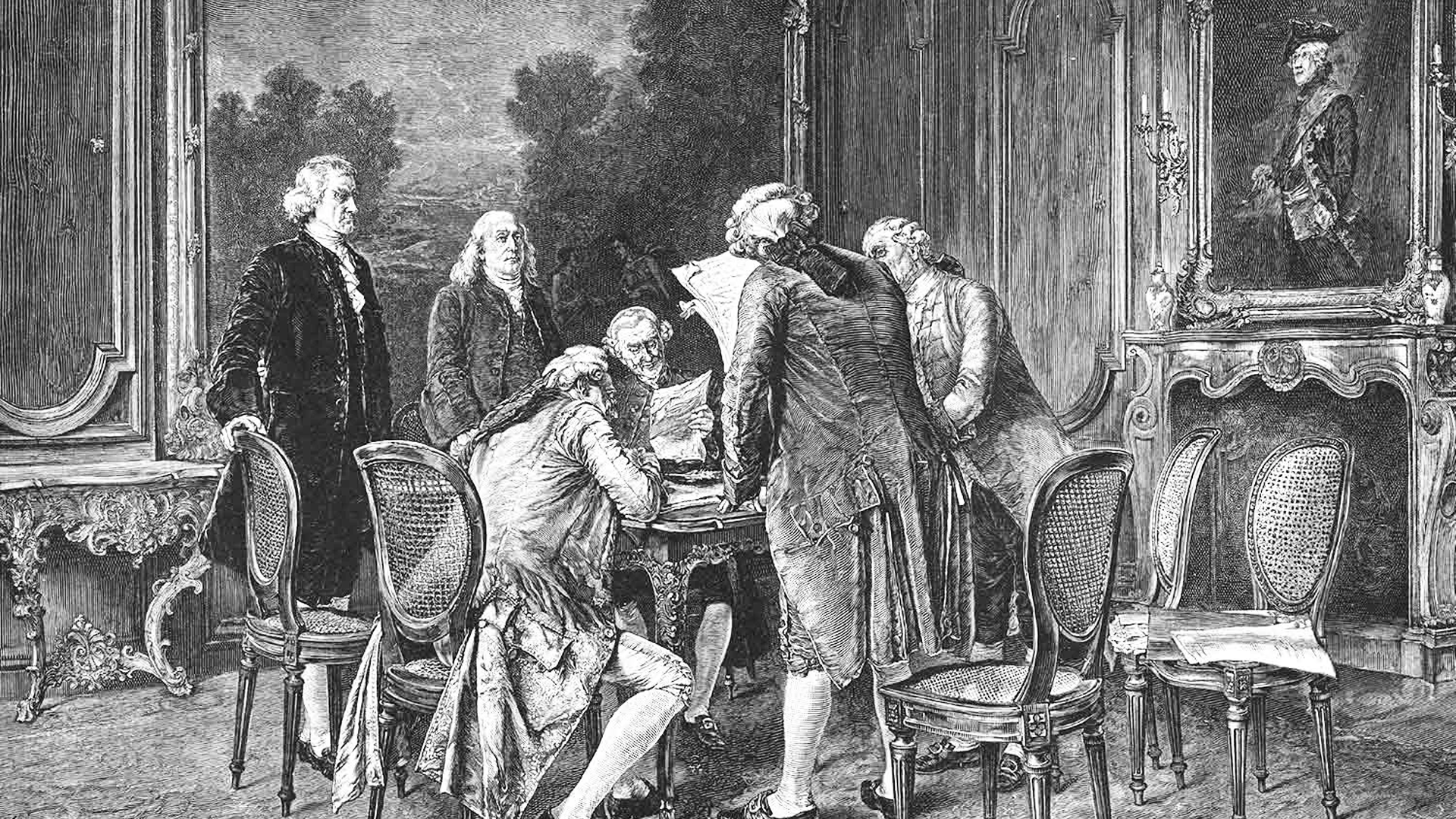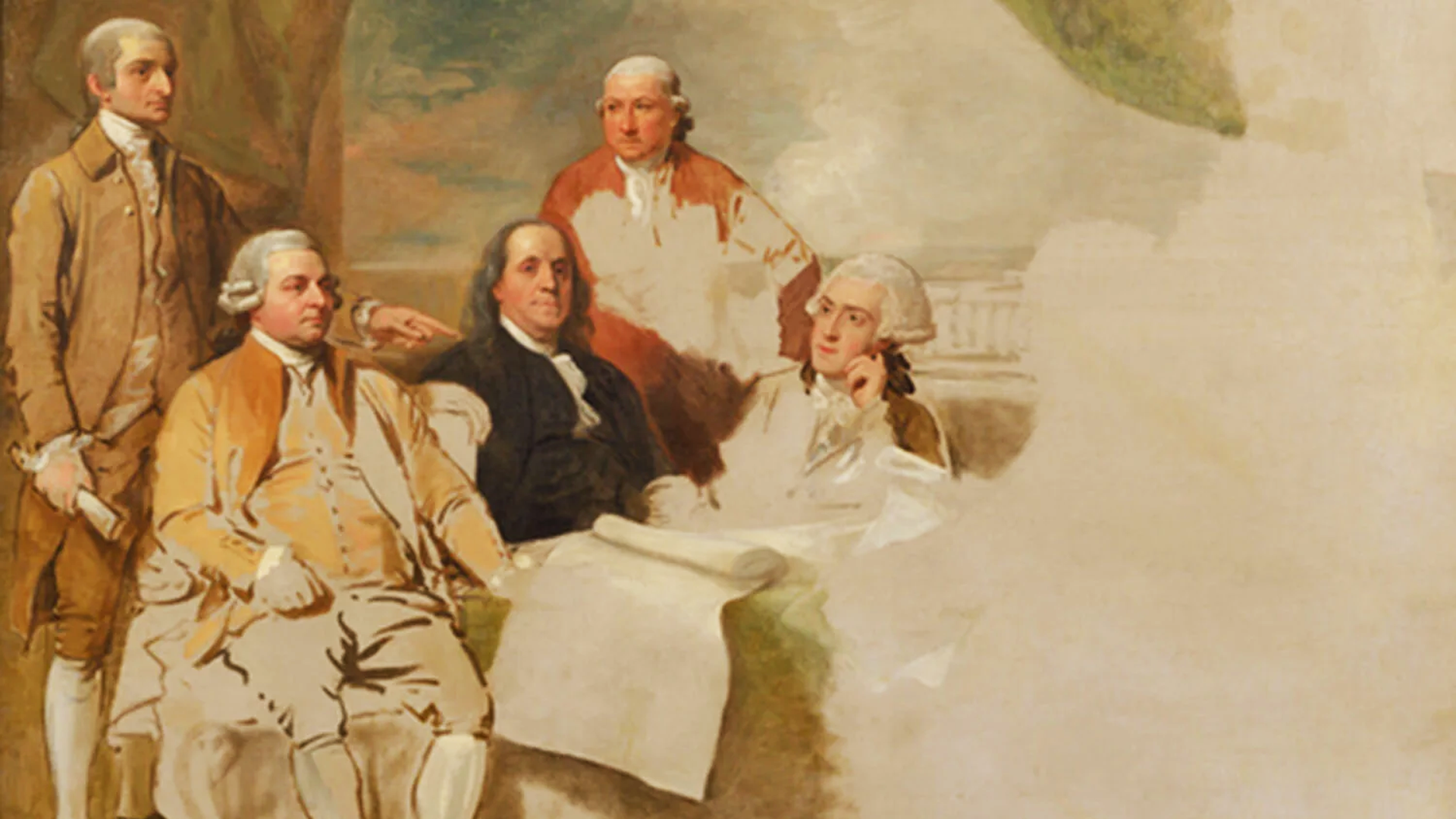John Adams Appointed to Negotiate Peace with Britain

On September 27, 1779, John Adams was appointed by the Continental Congress to negotiate peace and commerce treaties with Great Britain during the Revolutionary War.
What Happened?
In 1779, while the Revolutionary War was still raging, the Continental Congress appointed John Adams to sail to Europe and help negotiate peace with Britain. Adams wasn’t new to this kind of work—he had already traveled to France once before, but this new mission was even bigger. He would be responsible for representing America’s interests abroad at a time when the outcome of the war was still uncertain.
Adams didn’t travel alone. He brought along his young sons, John Quincy and Charles. The journey itself was dangerous: storms, leaks in their ship, and even the risk of being captured by the British navy. They eventually landed in Spain and made a long, exhausting trek across the Pyrenees mountains by mule before reaching Paris in early 1780.
Once in Europe, Adams kept up a steady stream of letters back to Congress. He reported on everything—British politics, French naval plans, and his perspective on European affairs. But Adams’ blunt personality often clashed with France’s top diplomat, the Comte de Vergennes, and even with his fellow American diplomat, Benjamin Franklin, who preferred a smoother, more patient approach.
Adams soon realized that France wasn’t as eager as he hoped to push Britain into giving America generous peace terms. So, he turned to the Netherlands. There, Adams achieved something remarkable: he secured loans from Dutch bankers that kept the struggling American government financially afloat, and he negotiated the Dutch-American Treaty of Amity and Commerce.
By 1782, the tide of war had shifted. Adams joined Franklin and John Jay in Paris to negotiate directly with the British, bypassing the French. Together, they won extraordinary terms in the Treaty of Paris (1783), including recognition of American independence, control of vast new lands stretching to the Mississippi River, and valuable fishing rights.
This was a turning point in world history. The British, who had once ruled the colonies with near-total authority, were now forced to accept America as an independent nation. The Treaty of Paris didn’t just end a war, it doubled the size of the United States and gave the young country a foothold on the international stage.
Adams’ decade of service abroad came at great personal sacrifice. He spent years away from his wife, Abigail, and their family, traveling more than 29,000 miles at a time when every journey was risky. Yet his determination helped secure both the money and the peace that America desperately needed.
Adams proved that diplomacy could be just as important as battles. Muskets and cannons won independence on the battlefield, but negotiation and persistence won recognition and survival on the world stage. Without Adams’ work in Europe, the Revolution might have ended very differently.
Why It Matters
John Adams’ diplomacy reminds us that revolutions aren’t just fought with armies, they’re also won with words, strategy, and persistence. His work with the Dutch kept America’s government alive financially, and his role in negotiating the Treaty of Paris gave the United States independence, land, and legitimacy. Adams sacrificed years with his family to ensure America’s survival, showing that diplomacy was as vital to freedom as any battlefield victory.
?
Why was it important for the United States to have allies like France and the Netherlands during the Revolutionary War?
What risks did John Adams and his family face when traveling to Europe during wartime?
How did the Treaty of Paris (1783) change the size and power of the United States?
Do you think negotiation is as important as fighting in wars for independence? Why or why not?
What qualities made John Adams an effective diplomat, even though he wasn’t always easy to get along with?
Dig Deeper
A Ken Burns documentary clip about the Treaty of Paris, where Franklin, Adams, and Jay secured American independence from Britain.
Related

Halifax Resolves and the Road to Revolution
How North Carolina went from protest to the first official call for full independence from Britain.

American Revolutionary War: From Protest to a New Nation
How arguments over taxes and rights grew into an eight-year war—and how ideas, allies, and perseverance turned thirteen colonies into the United States.

The Role of Ideas in Revolutionary Change
The Role of Ideas in Revolutionary Change: How can ideas and writings change the course of history?
Further Reading
Stay curious!
